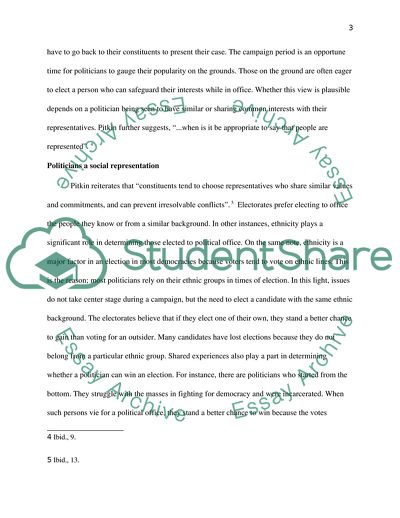Cite this document
(Descriptive and Symbolic Representation in Everyday Life Essay Example | Topics and Well Written Essays - 1500 words, n.d.)
Descriptive and Symbolic Representation in Everyday Life Essay Example | Topics and Well Written Essays - 1500 words. https://studentshare.org/politics/1858902-descriptive-symbolic-representation-in-everyday-life
Descriptive and Symbolic Representation in Everyday Life Essay Example | Topics and Well Written Essays - 1500 words. https://studentshare.org/politics/1858902-descriptive-symbolic-representation-in-everyday-life
(Descriptive and Symbolic Representation in Everyday Life Essay Example | Topics and Well Written Essays - 1500 Words)
Descriptive and Symbolic Representation in Everyday Life Essay Example | Topics and Well Written Essays - 1500 Words. https://studentshare.org/politics/1858902-descriptive-symbolic-representation-in-everyday-life.
Descriptive and Symbolic Representation in Everyday Life Essay Example | Topics and Well Written Essays - 1500 Words. https://studentshare.org/politics/1858902-descriptive-symbolic-representation-in-everyday-life.
“Descriptive and Symbolic Representation in Everyday Life Essay Example | Topics and Well Written Essays - 1500 Words”. https://studentshare.org/politics/1858902-descriptive-symbolic-representation-in-everyday-life.


